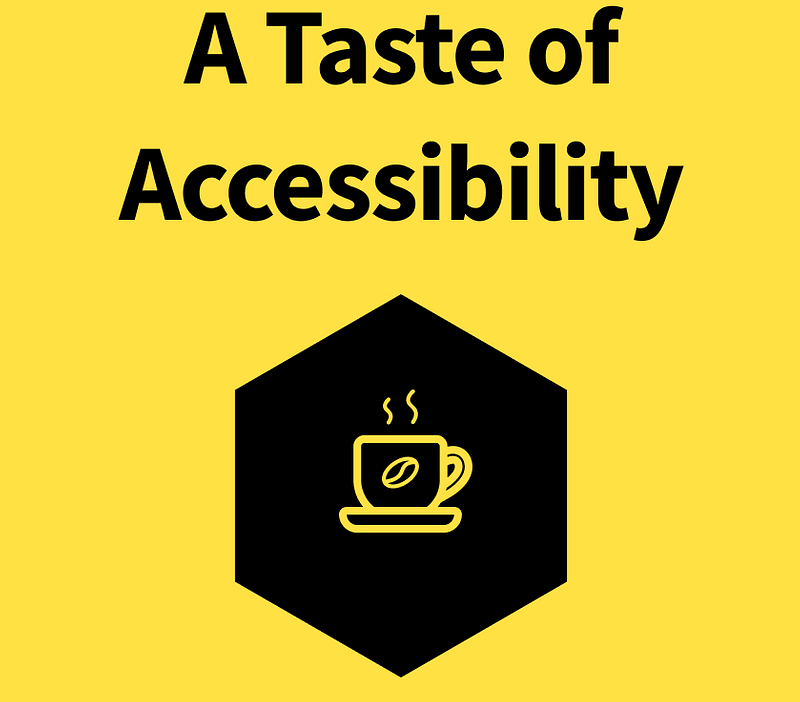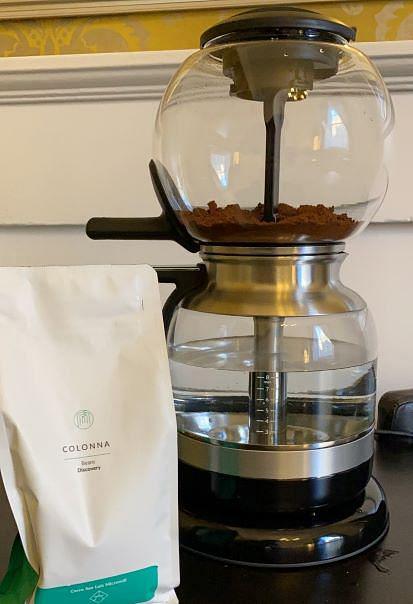A Taste of Accessibility
25 November 2019 - Andrew Gribben

When I told the UV team that I was going to run a coffee tasting session on World Usability Day, whilst talking about accessibility, I got some very puzzled looks. You might feel the same why, after all, what has coffee got to do with digital accessibility? I could apply some heavy handed metaphors here but the similarity isn't in the industry but in the approach and to understand that you need to understand a little bit about me...
I really like coffee.
Like really, really! Wether that's brewing, roasting or drinking I'll have an opinion on the best way to do it, so much so that back in day I even participated in the UK Barista Championship (although I didn't do very well). I have at least a dozen different coffee brewers at home and two coffee roasters and that's where the story gets interesting. You see coffee roasting is part art, part science. Small adjustments to temperature and time (and of course quality) affect how the coffee tastes. I kept detailed logs in a spreadsheet of those variables and was forever making adjustments, recording notes of flavour profiles, in order to produce the perfect cup.
I shared this origin story at WUD as I brewed up a siphon pot for attendees. The beans were good, the brewer expensive but I had no thermostat or scales; an odd move for a self-professed coffee snob? Yes, but that was the point. I've taken a research backed approach to most things in my career and testing and metrics have always been important, as has the quality of the input, but looking back at my coffee roasting days I realise that in my attempt to make a perfect brew, I'd lost sight of the thing that I really enjoyed, drinking a nice cup of coffee.
And that's a trap we can fall into when trying to build an accessible website or app. Just because we spend time pouring over specifications doesn't mean that what we create will be accessible. It might be, but if so will it be good? In accessible design and in coffee, the best ingredients and the right process don't necessarily mean a good cup of coffee. Perhaps you'll get trapped, like me, trying to perfect the process, or an external factor that you didn't consider will knock everything off course. Or perhaps, with luck, you'll pull it off, but can you do it again?
When you're roasting coffee you have to sample a lot, these coffee cuppings might leave a bitter taste in your mouth, if something went, but they guides to the roaster to the changes that need to be made. Standards like WCAG are essential to building an accessible web, but they don't cover every possibility and they definitely don't contain every answer. So when things taste bitter, take a break (a coffee break?), have a chat with your team, work out what went wrong and then try again. Most importantly, remember you're trying to create an accessible experience not tick boxes on a checklist.
Gold Blend might technically be coffee, but if that's the only option, I'll probably choose tea!

You might also be interested in...
Understanding Accessibility Drift - And How to Prevent It
12 February 2026Why accessibility standards erode after audits, and what continuous monitoring can do about it.
Read the article: Understanding Accessibility Drift - And How to Prevent ItWhen Did You Last Update Your Accessibility Statement?
11 December 2025Your accessibility statement says more about your organisation than you think. Learn why keeping it current matters for trust, compliance, and user experience—and what UK, EU, and US regulations expect.
Read the article: When Did You Last Update Your Accessibility Statement?Making Hospitality Welcoming for All: A Digital Accessibility Guide for Hotels
21 November 2025Hotels have long focused on physical accessibility, but true inclusion extends online. This practical guide explains how to make your hotel website accessible for all guests—meeting global WCAG and EAA standards, expanding your reach, and creating a seamless booking experience for every visitor.
Read the article: Making Hospitality Welcoming for All: A Digital Accessibility Guide for Hotels